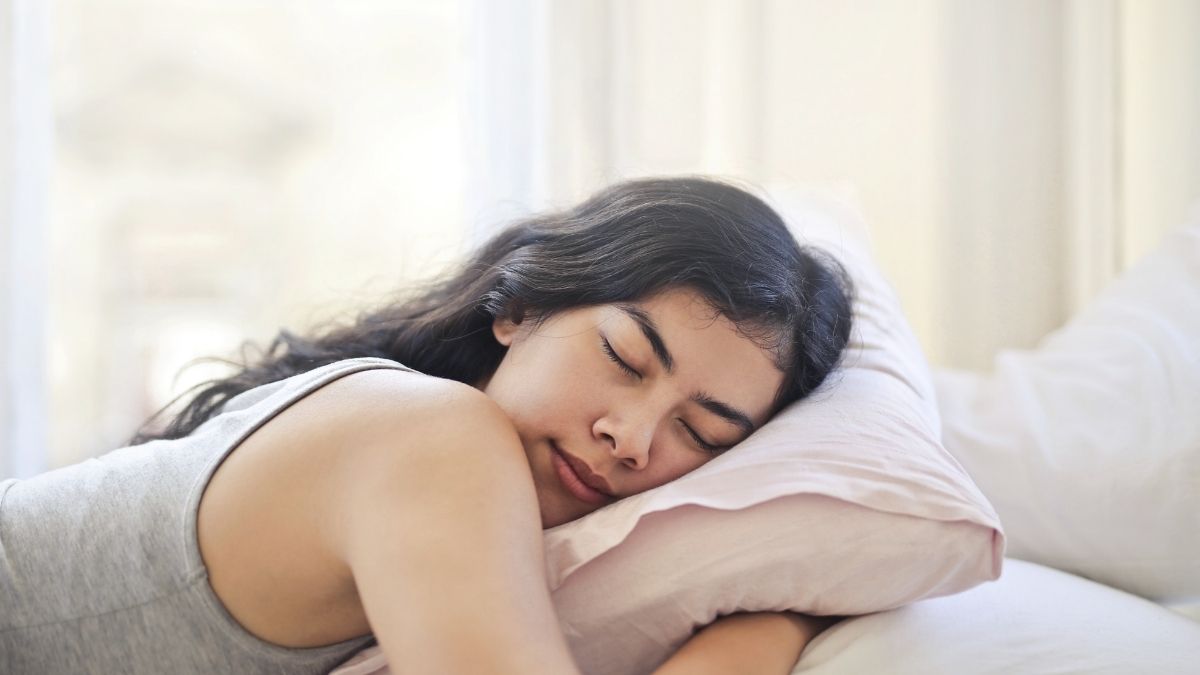Stressful work, family responsibilities, and unexpected challenges can all contribute to a restless night of sleep. After all, it’s no surprise that the quality of sleep is sometimes hard to come by.
Good sleep can help you lose weight, lead a healthier lifestyle, and improve your mood! Research shows that it can actually lead to weight gain and increase disease risk in both adults and children. Contrastingly, there are many benefits to getting enough rest.
Here’s the list of our 9 tips:
#1 Day light exposure
Your body has a natural clock which is called the circadian rhythm. It affects your brain, body, and hormones to keep you awake at night and tell you when you sleep.
Natural sunlight during the day and bright lights in the evening can help keep your circadian rhythm healthy- and in turn, you’ll experience improved daytime energy and quality night time sleep. Research shows that these lights can be helpful for people with insomnia- in one study, night time bright lights improved sleep duration and quality in people who experienced night time insomnia.
#2 Blue light exposure
In addition to the sun, exposure to light during the night is also beneficial. However, exposure at night can have a negative effect on your circadian rhythm. Electronic devices emit blue light which tricks the brain into thinking it’s still daytime, and this reduces melatonin. Melatonin helps you get deep sleep.
You can try the following to block or reduce blue light
- Stop using electronic devices such as mobile, computer, tv early in the evening. Give yourself enough time before bed.
- Download app on your smart devices to block the blue light
#3 Caffeinated beverages
Caffeine is a stimulant that has a heap of benefits. A lot of us consumes it daily basis and a single dose can boost your focus, improve your energy levels, and even enhance sports performance. Late night consumption, however, can have a negative side effect: Caffeine stimulates the nervous system and may prevent you from resting naturally at night.
Drinking coffee after 4pm is not recommended for people who are sensitive to caffeine or have problems sleeping. Caffeine’s effect stays in your blood for 6-8 hours.
#4 Irregular day naps
It’s important to not sleep for too long during the day, as it can negatively impact your night time sleep. If you need to, take a short nap to recharge your batteries, but don’t overdo it.
A study recently noted that a short nap is good for your brain’s daytime performance, but if you nap too long, you might not get the best sleep. A certain amount of people who are used to taking naps say they don’t have disrupted sleep at night or poor sleep quality.
#5 Consistent times
Your body’s circadian rhythm is a set loop, aligning with sunrise and sunset. Consistency with sleep is an aid in long-term sleep quality. People who have irregular sleeping patterns, such as going to bed late on weekends, are more likely to have poor sleep.
If you suffer from sleep deprivation, try to wake up and go to bed at more similar times. After a few weeks of doing so, you may not even need an alarm clock.
#6 Melatonin supplement
One key sleep hormone is melatonin. When your brain receives the melatonin signal, it’s time to sleep! Several studies have looked at the effects of melatonin supplements on sleep. The results are very promising. Melatonin is also helpful when you’re traveling. When you go on a long trip, it can be hard to adjust your body’s circadian rhythm back to normal. This is where melatonin can help. It helps your circadian rhythm return to normal. You may require a prescription from medical professional to obtain in certain countries.
#7 Keep away from alcohol
It’s never a good idea to have a drink at night. Alcohol is known to cause, or at the very least, increase your sleep problems. Drinking can lead to sleep apnea, snoring, and disrupted sleep patterns. And if you go too far with it, things can get even worse. You might start feeling sick, become intoxicated, and even have a hangover.
#8 Bedroom Surroundings
Sleeping well is key to a healthy lifestyle. One of the most important factors for a good night’s sleep is the environment and its setup. Temperature, noise, light, and furniture arrangement affect the quality of sleep and should all be factored into a setup that promotes sound slumber.
Busy streets and other sources of noise, such as traffic or construction, can cause people to have trouble sleeping. This may result in long-term health issues.
When it’s too hot at night, it can be hard to sleep. And during the winter, you might have trouble sleeping because it’s just too cold. Luckily, there are ways to help the body stay at the right temperature so you can sleep well.
#9 Late evening meals
Late-night snacking may have an adverse effect on your sleep. For example, when you eat, what you eat, and how late in the evening you eat. According to one study, A high-carb meal eaten 4 hours before bed helped people fall asleep faster.
Bonus Tip – Night bath or shower
You might have heard that a nice shower or bath can help you sleep better. In fact, studies show that these activities can help improve sleep quality, making it easier for people to fall asleep. This is mainly true for some older adults.
Better sleep tips shared by https://flemicon.com


